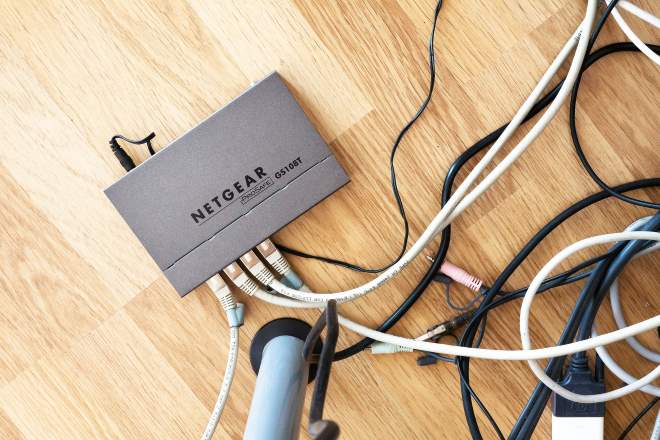Used Car on Monthly Payments Without Salary Certificate: A Practical Guide
If you’re planning to buy a used car but don’t have salary certificate, there are still relevant finance options. From dealership plans to peer-to-peer lending and guarantor support, this guide shows practical ways to secure a car loan without traditional proof of income. Learn what documents help, how to pick the right vehicle and negotiate terms confidently.

The automotive market in the United Arab Emirates offers numerous opportunities for buyers seeking flexible payment arrangements. Understanding the available options and preparing appropriate documentation can significantly improve your chances of approval, even without conventional employment papers.
Challenges of Car Finance Without Salary Certificate
Traditional automotive financing in the UAE heavily relies on salary certificates as primary proof of income stability and repayment capacity. Banks and financial institutions use these documents to assess credit risk and determine loan eligibility. Without this standard documentation, applicants face heightened scrutiny and potentially higher interest rates. Lenders perceive greater risk when conventional income verification is unavailable, leading to stricter approval criteria. Self-employed individuals, freelancers, commission-based workers, and those with irregular income streams often encounter these obstacles. Additionally, recent job changes or gaps in employment history can complicate the approval process. Understanding these challenges allows prospective buyers to prepare alternative strategies and documentation that address lender concerns while demonstrating genuine repayment capability.
Dealership Finance and Alternative Lending Options
Many used car dealerships throughout the UAE maintain relationships with specialized finance companies that offer more flexible approval criteria than traditional banks. These alternative lenders often consider a broader range of documentation and income sources. Some dealerships provide in-house financing programs designed specifically for buyers without standard employment verification. These arrangements may involve higher down payments or interest rates but offer accessibility when conventional channels prove restrictive. Peer-to-peer lending platforms and Islamic finance institutions also present viable alternatives, with some accepting alternative income verification methods. Credit unions and cooperative societies occasionally extend financing to members based on different assessment criteria. Online lending platforms have emerged as another option, utilizing technology-driven risk assessment models that evaluate factors beyond traditional salary documentation. Researching multiple financing sources increases the likelihood of finding terms that accommodate your specific situation.
Supporting Documents That Help Approval
While salary certificates remain the standard, numerous alternative documents can demonstrate financial stability and repayment capacity. Bank statements covering six to twelve months provide clear evidence of regular income deposits and financial management habits. Tax returns and business registration documents prove particularly valuable for self-employed applicants, showing legitimate income sources and business continuity. Utility bills and rental agreements in your name establish residency stability, which lenders view favorably. Property ownership documents, investment portfolios, and savings account statements demonstrate overall financial health beyond monthly income. Professional licenses, client contracts, and invoice records can validate ongoing business relationships for freelancers and contractors. Letters from accountants or financial advisors may add credibility to your financial profile. Some lenders accept proof of rental income, pension statements, or regular remittances as supplementary evidence. Gathering comprehensive documentation before approaching lenders strengthens your application and demonstrates financial responsibility, potentially offsetting the absence of traditional employment verification.
Choosing the Right Used Car for Your Budget
Selecting an appropriate vehicle significantly impacts financing approval and long-term affordability. Lenders more readily approve loans for reliable, well-maintained vehicles with strong resale value. Japanese and Korean brands typically offer lower maintenance costs and better fuel efficiency, reducing overall ownership expenses. Consider vehicles between three to five years old, which balance affordability with remaining warranty coverage and mechanical reliability. Research common mechanical issues for specific models to avoid unexpected repair costs that could strain your budget. Calculate total ownership costs including insurance, registration, maintenance, and fuel consumption before committing to monthly payments. Vehicles priced within reasonable proportion to your verifiable income receive more favorable consideration from lenders. Opting for a modest vehicle initially allows you to establish a positive payment history, potentially enabling upgrades to better vehicles in the future. Inspection by qualified mechanics before purchase prevents costly surprises and ensures the vehicle justifies the financing commitment.
Comparison of Financing Options
| Financing Option | Typical Down Payment | Approval Flexibility | Interest Rate Range |
|---|---|---|---|
| Traditional Bank Loans | 20-30% | Low without salary certificate | 2.99-6.99% annually |
| Dealership In-House Financing | 10-25% | Moderate to High | 5.99-12.99% annually |
| Alternative Lending Companies | 15-35% | High | 7.99-15.99% annually |
| Islamic Finance Institutions | 20-30% | Moderate | 3.99-8.99% annually |
| Peer-to-Peer Platforms | 15-40% | Moderate | 6.99-14.99% annually |
Prices, rates, or cost estimates mentioned in this article are based on the latest available information but may change over time. Independent research is advised before making financial decisions.
Negotiating Better Monthly Terms Without Income Papers
Successful negotiation begins with understanding your leverage points and demonstrating commitment to the transaction. Offering a larger down payment immediately reduces lender risk and often results in more favorable interest rates and approval likelihood. Presenting comprehensive alternative documentation proactively shows preparedness and financial transparency. Be prepared to discuss your income sources openly, explaining how you generate consistent revenue despite lacking traditional employment. Requesting shorter loan terms, while increasing monthly payments, reduces total interest paid and demonstrates confidence in your repayment ability. Some buyers successfully negotiate by offering post-dated checks or automatic payment arrangements that provide lenders additional security. Shopping multiple dealers and lenders creates competitive pressure that may yield better terms. Bringing a co-signer with strong credit and verifiable income substantially improves approval chances and negotiating position. Timing your purchase during promotional periods or end-of-month sales cycles when dealers face targets can provide additional negotiating leverage. Maintain realistic expectations while firmly advocating for terms that genuinely fit your financial capacity, ensuring sustainable payments that protect both your interests and credit standing.
Building Your Financial Profile for Future Purchases
Successfully securing financing without traditional documentation opens pathways for future vehicle purchases under improved conditions. Consistently meeting monthly payment obligations builds positive credit history that benefits subsequent financing applications. Maintaining organized financial records and banking relationships strengthens your profile for future transactions. Consider gradually transitioning toward more formal income documentation if possible, as this expands financing options significantly. Establishing relationships with specific dealerships or lenders can lead to preferential treatment on future purchases based on demonstrated reliability. Regularly reviewing your credit report ensures accuracy and allows you to address any discrepancies promptly. Building emergency savings provides buffer against unexpected financial challenges that might otherwise disrupt payment schedules. As your financial situation stabilizes or formalizes, refinancing existing loans may become possible at more favorable rates. The experience gained navigating alternative financing routes provides valuable knowledge for making increasingly informed automotive purchasing decisions throughout your life in the UAE.




